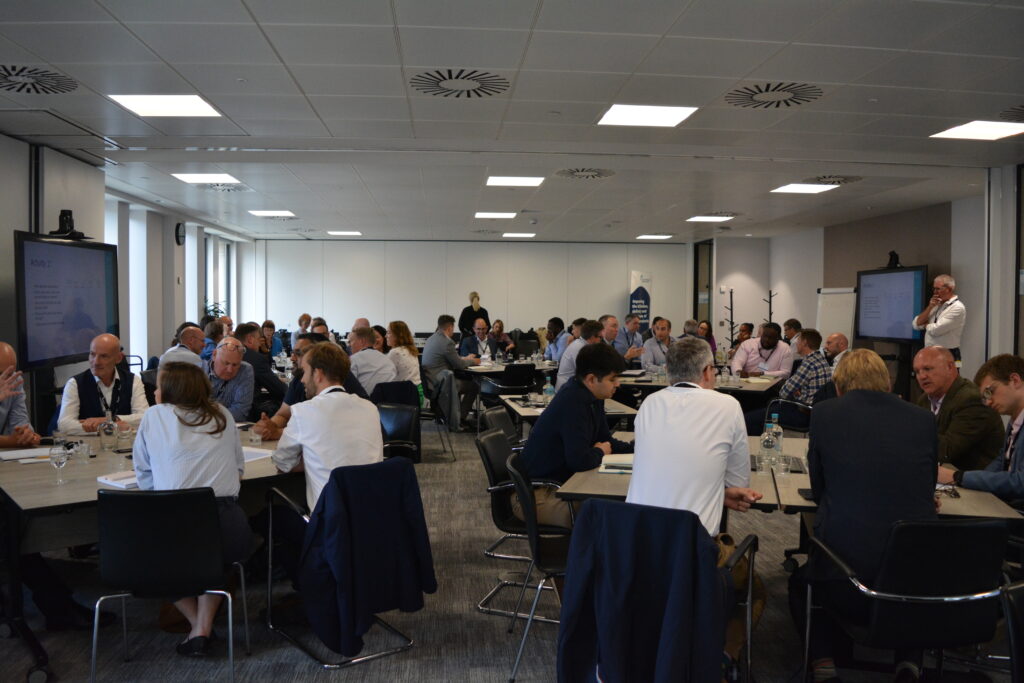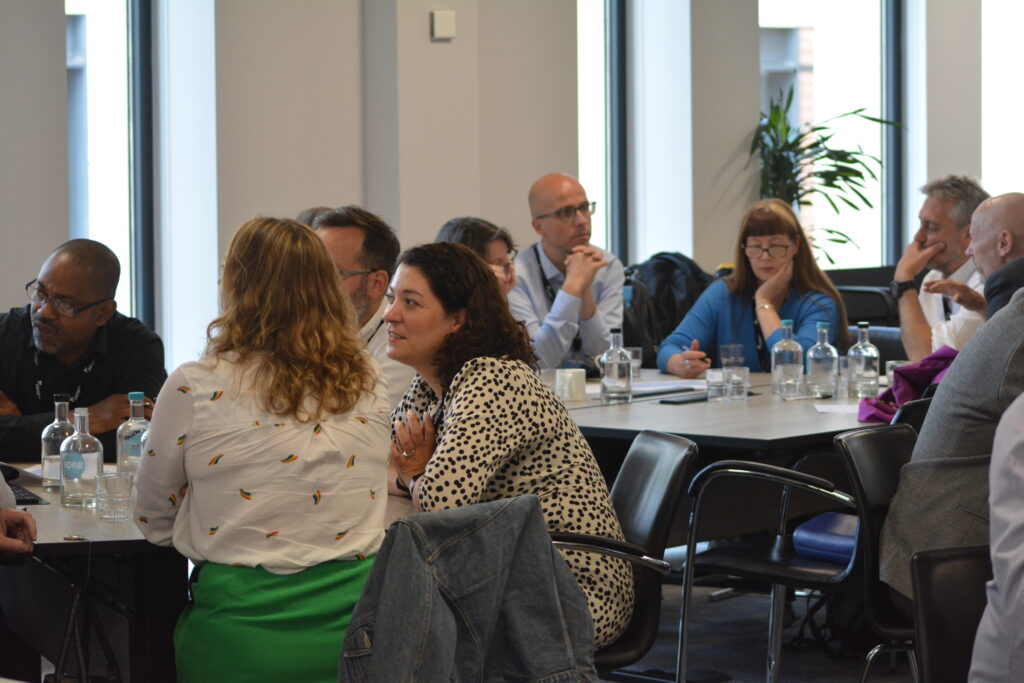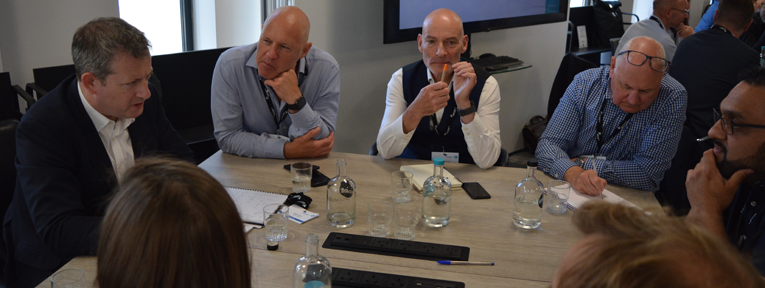On the 5th of June, we facilitated an interactive workshop in partnership with the Major Projects Association (MPA) and welcomed Manon Bradley, Development Director at the MPA and Emma-Jane Houghton, a commercial specialist with over 20 years of experience in the public and private sectors.
We had an exceptional turnout, with over 50 industry professionals, to explore the impact of leadership in delivering successful outcomes through major projects, specifically the role of clients and delivery team leaders. The interactivity of the session sought to interrogate our beliefs around project leadership and encouraged us to challenge the assumption that clients always know best.

Edward Moore, our Chief Executive, began the session by taking ideas for the punch line to the workshop title. Some of the more coherent responses included “…and created a RACI”, “…and asked one another what was happening”, or “…and appointed a delivery partner”.
Manon then spent a few minutes highlighting the key themes from the MPA report ‘No More Heroes’ which was published last year. The report focuses on leadership capability and the need to address how major projects and programmes are led. Emma-Jane then followed, with her views on the concept of the ‘Incomplete Client’. Her intention was to challenge our existing notions around the role of the client in a major project, and encourage an alternative way of thinking about how we can work together to drive improvements in the way projects are delivered.
Emma-Jane’s observations are based on the recognition that project delivery in the modern world is immensely complex and requires us to step back and rethink the approach to being an effective client:
It is my view that our current understanding and approach to clienting is 2D in a very much 5D world. Clienting has become outdated and is not well matched to today’s spectacularly complex environment and all its rich possibilities – especially the pace of change, challenges, and ambiguity. We spend too much of our industry’s energies stuck in the problems of today pointing at poor performance and lamenting the lack of supply chain investment rather than upping our clienting game.
There were two group activities undertaken during the workshop with the first being to identify activities within the project lifecycle that require leadership. The group were then asked to assign which organisation might be best placed to lead these elements. For example, defining the commercial strategy might be best placed with the Client, but resource management would be led by the Delivery Partner. They then provided explanations as to why these were the best organisations to lead and possible barriers to the identified organisation leading the element. This gave the delegates the opportunity to explore whether the client (or more commonly expected leader) is the right leader for the job or whether the responsibility could be best placed elsewhere. This exercise also allows room for discussion on the types of qualities needed for each leadership role.

The second activity was to take the activities identified in the first exercise and map them across to the project lifecycle. Delegates were then asked to use the Cynefin Framework (pronounced kuh-nev-in) which was developed to help leaders understand their challenges and to make decisions in context. By distinguishing different domains (the subsystems in which we operate), the framework helps recognise that our actions need to match the reality we find ourselves in different phases, through a process of sense-making. The outcome of the exercise was to reevaluate the leadership role and showed that during the life of a project the leader’s ‘baton’ changes hands depending on the phase the project is in and the capabilities required.
During the workshop, the participants were asked to respond to a number of questions to gather their thoughts before and after the exercises. Having analysed the outputs produced by each of the groups and the poll responses, we have been able to pull some interesting insights:
1) There was a highly diverse split of who the Client was perceived to be, supporting the notion that the term ‘Client’ is not fully understood and requires work to clarify and cohere
2) 52% of respondents believed that project decisions were controlled by the project leadership team which demonstrated that the majority see decisions are being governed and driven by the client’s appointed SLT

3) Over 80% of respondents associated the term ‘Client’ with positive qualities, with a strong correlation towards EQ (emotional quotient) centric skills which indicated a preference for softer, less autocratic methods of project delivery
4) Clients were assigned the most leadership responsibilities in a project or programme, highlighting limited leadership from the supply chain. However, there were some responsibilities were across multiple owners such as Funding (Sponsor and Client) and Delivery Model (Client and Delivery Organisation).

The purpose of the workshop was to explore how clienting is done today and whether there needs to be a change in approach, the insights gathered from the workshop strongly allude to the disjointed practices and misconceptions of client responsibilities. There is more that the supply chain can do to support clients achieve their outcomes through effective project and programme leadership.
Emma-Jane’s work developing the concept of the ‘Incomplete Client’ is still ongoing and she would welcome anybody who had anything to share, such as example projects where they have experienced successful clients or have been a successful client themselves. Please reach out to richard.dagama@resolex.com to get in touch.
